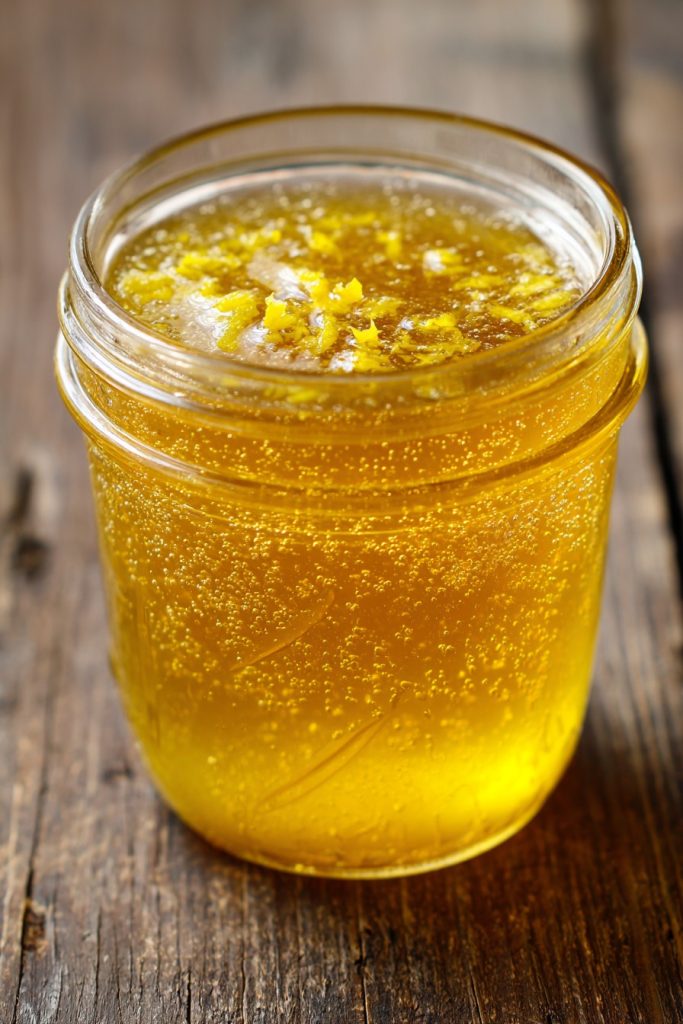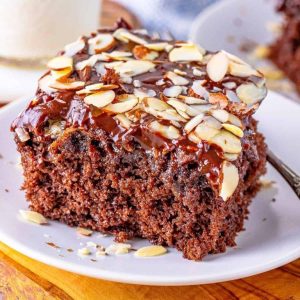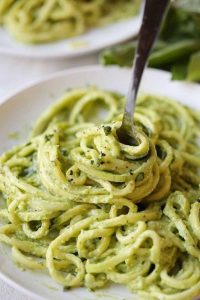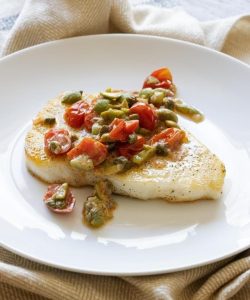Just thinking about lemon syrup takes me back to my grandmother’s sun-drenched kitchen, where the scent of citrus would fill the air every summer morning. Joy would bubble up inside me as I’d watch her carefully stir that golden liquid, knowing it would transform our ordinary days into something magical. Just a spoonful in my glass of water could turn the hottest afternoon into a celebration, and that memory still warms my heart decades later.
Why This Recipe Works
- The perfect balance of sweet and tart creates that nostalgic flavor profile we all remember from childhood summers, when life was simpler and every glass of lemonade felt like a special treat made just for you
- Using both lemon zest and juice ensures you capture every bit of that bright, sunny flavor that reminds me of helping my grandmother in her garden, picking lemons while she told stories about her own childhood
- The simple syrup base provides the ideal texture for mixing into drinks or drizzling over desserts, just like my mother used to do with our Sunday pancakes, making ordinary breakfasts feel like festive occasions
- Proper sterilization and storage techniques mean you can preserve that summer sunshine flavor all year long, allowing you to share a taste of warm memories even on the coldest winter days
- The versatility of this recipe lets you create countless variations while maintaining that core comforting flavor that connects generations of family cooks
Ingredients
- 2 cups granulated sugar
- 1 cup water
- 1 cup freshly squeezed lemon juice (from about 6-8 medium lemons)
- 2 tablespoons finely grated lemon zest
- 1/4 teaspoon salt
Equipment Needed
- Medium saucepan
- Fine-mesh strainer
- Measuring cups and spoons
- Citrus juicer or reamer
- Microplane or zester
- Clean glass jar or bottle with tight-fitting lid
- Wooden spoon
- Funnel (optional but helpful)
Instructions
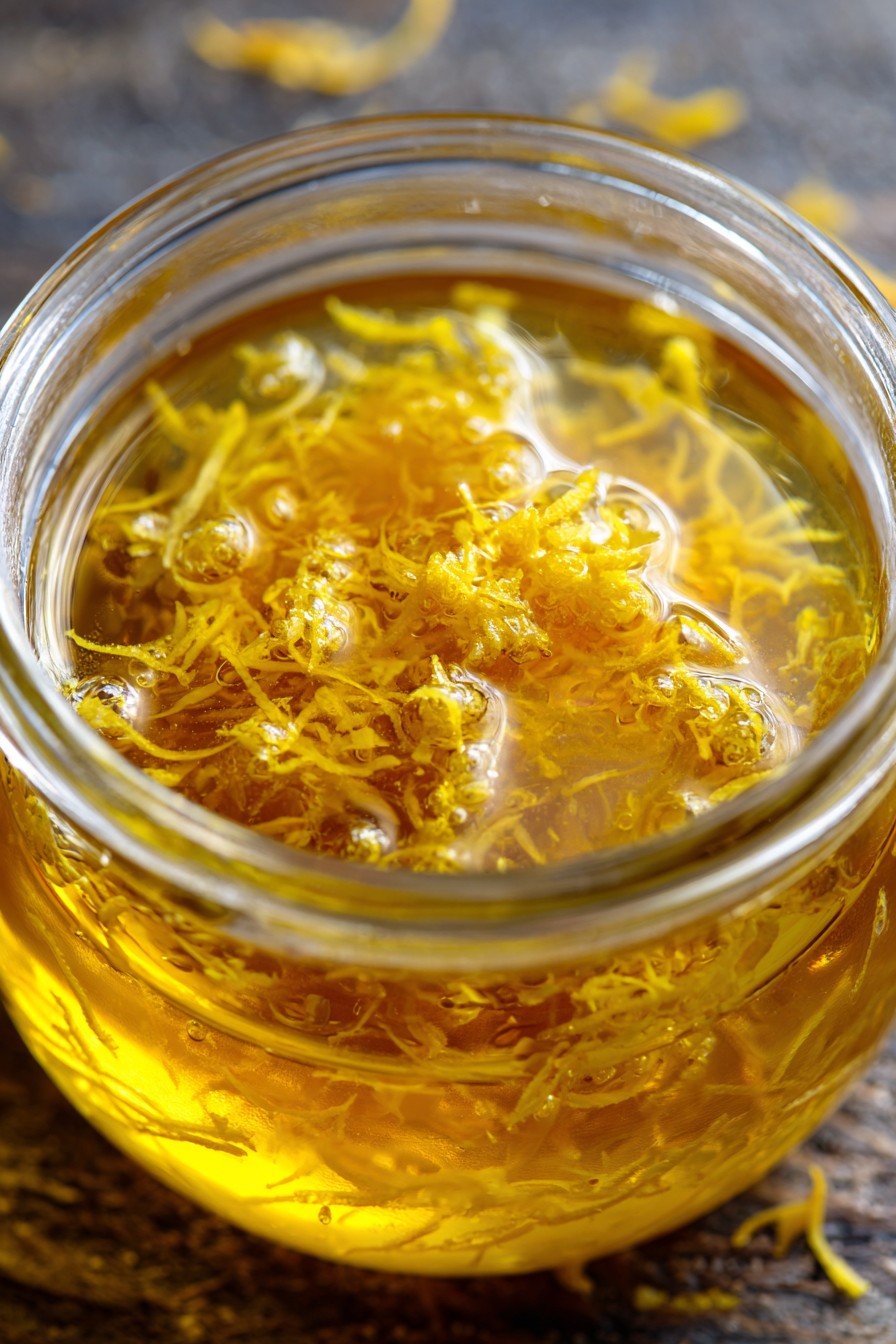
Prepare Your Lemons with Love
Begin by selecting bright, firm lemons that feel heavy for their size, just like my grandmother taught me to do at the farmers market when I was barely tall enough to see over the counter. Wash them thoroughly under cool running water, gently scrubbing the skins to remove any wax or residue, remembering how my mother would always say “clean ingredients make happy memories.” Using your microplane or zester, carefully remove the vibrant yellow zest from all your lemons, being mindful to avoid the bitter white pith underneath – this step always takes me back to standing on a step stool next to my grandmother as she showed me exactly how much pressure to apply. Once you have your two tablespoons of fragrant zest set aside, cut each lemon in half and juice them completely, catching any seeds with your strainer. This process of preparing the lemons always feels like a meditation, connecting me to all the women in my family who made this same syrup with the same careful attention.
Create the Simple Syrup Foundation
In your medium saucepan, combine the two cups of granulated sugar with one cup of water, stirring gently as you remember how my aunt would always hum while she worked, creating a kitchen filled with music and sweetness. Place the saucepan over medium heat and stir continuously with your wooden spoon until the sugar completely dissolves, which should take about 3-4 minutes of patient stirring – don’t be tempted to rush this step, as proper dissolution is crucial for that smooth texture we all love. You’ll know the sugar has fully dissolved when the liquid becomes completely clear and no sugar crystals remain on the bottom of the pan when you scrape it with your spoon. Tip: Always use a wooden spoon rather than metal when making syrup, as my grandmother insisted it “kept the sweetness pure” and didn’t transfer any metallic taste to our precious creation. This foundation step creates the perfect canvas for our lemon flavors to shine, much like how my mother would always say a good foundation makes everything else in life come together beautifully.
Infuse with Lemon Sunshine
Once your simple syrup is clear and perfectly blended, reduce the heat to low and carefully stir in your freshly squeezed lemon juice and the beautiful lemon zest you prepared earlier. The moment the lemon juice hits the warm syrup, that incredible citrus aroma will fill your kitchen, transporting you straight back to those summer mornings of childhood when everything felt possible. Continue to cook the mixture over low heat for exactly 8 minutes, stirring occasionally but not too vigorously – this gentle cooking allows the flavors to marry without becoming bitter. You’ll notice the syrup thickening slightly and the color deepening to a warm golden yellow, like captured sunshine in a pot. Tip: Never let the syrup come to a full boil after adding the lemon juice, as my mother always warned that boiling would make our syrup taste “angry” instead of joyful. This infusion process is where the magic really happens, transforming simple ingredients into that beloved flavor we associate with family gatherings and happy moments.
Strain and Cool with Care
After your 8 minutes of gentle heating, remove the saucepan from the heat and let it sit for 2 minutes to allow the flavors to settle, just like my grandmother would always say “good things need a moment to find their balance.” Place your fine-mesh strainer over a clean bowl or measuring cup and carefully pour the warm syrup through to catch all the lemon zest and any pulp – don’t press on the solids, just let gravity do its work. Watching that golden liquid stream through the strainer always reminds me of honey dripping from the comb on my grandfather’s farm, a natural sweetness that can’t be rushed. Allow the strained syrup to cool completely at room temperature for about 45 minutes to 1 hour, during which time the flavors will continue to develop and mellow. Tip: For the clearest syrup, strain it a second time through a cheesecloth-lined strainer, a technique my great-grandmother swore by for achieving that perfect, jewel-like clarity we all admire in family heirloom recipes.
Bottle Your Sunshine
Once your lemon syrup has cooled completely to room temperature (test by touching a drop to your wrist, just like my mother taught me for testing baby bottles), it’s time to transfer it to your clean glass jar or bottle. If you’re using a funnel, position it securely in the mouth of your container and slowly pour the syrup through, taking care not to spill any of that liquid gold. Wipe the rim of your container clean with a damp cloth before sealing it tightly with the lid, remembering how my grandmother would always say “a clean seal keeps memories fresh.” Store your finished lemon syrup in the refrigerator where it will keep beautifully for up to 3 months, though in our house it never lasted more than a few weeks before we needed to make another batch. Label your container with the date, and perhaps even write “Sunshine in a Jar” like my daughter now does, continuing our family tradition of turning simple cooking into cherished rituals.
Tips and Tricks
Creating the perfect lemon syrup is as much about technique as it is about heart, and over the years I’ve gathered wisdom from generations of family cooks that I’m delighted to share with you. When selecting lemons, look for those with thin, smooth skins as they tend to be juicier and more flavorful – my grandmother could tell a good lemon just by holding it, saying the weight should feel “like happiness in your hand.” If you find yourself with extra lemon syrup, consider freezing it in ice cube trays for individual portions that can be dropped directly into glasses of water or tea, a trick my mother discovered during one particularly bountiful lemon season. For those who prefer a less sweet syrup, you can reduce the sugar to 1 1/2 cups, but keep in mind that sugar acts as a preservative, so the syrup may not keep as long – my aunt always made two batches, one sweeter for the children and one less sweet for the adults. If your syrup crystallizes during storage, simply place the sealed jar in a bowl of warm water until the crystals dissolve, then shake gently to recombine – this happened to me once when I was first learning, and my grandmother showed me this simple fix with a patient smile. For an extra special touch, add a vanilla bean to the syrup during the final minutes of cooking, then remove it before bottling – this was my great-aunt’s secret ingredient that made her lemon syrup legendary at family reunions. Always use freshly squeezed lemon juice rather than bottled, as the flavor difference is remarkable and worth the extra effort – my mother used to say “bottled lemon juice is for emergencies, but fresh is for love.” When zesting your lemons, work over a piece of parchment paper to catch every precious bit of zest, then funnel it directly into your measuring spoon – this little technique prevents waste and honors the fruit, something my grandmother emphasized in her Depression-era wisdom. If you’re making multiple batches for gifts, consider adding a sprig of fresh thyme or rosemary to each bottle for an herbal twist that makes each gift unique – my sister started this tradition, and now our holiday gift exchanges always include these personalized bottles of sunshine.
Recipe Variations
- Lavender Lemon Syrup: Add 2 tablespoons of food-grade dried lavender buds to the simple syrup as it cooks, then strain them out along with the lemon zest. The floral notes combine beautifully with the citrus, creating a sophisticated flavor that reminds me of the lavender bushes that grew outside my grandmother’s kitchen window. This variation is perfect for special occasions or when you want to feel particularly fancy, just like my mother would make for her bridge club meetings.
- Ginger-Lemon Sunshine Syrup: Add 1/4 cup of freshly grated ginger to the simple syrup during the initial cooking stage, letting it infuse for the full cooking time before straining. The spicy warmth of ginger paired with bright lemon creates a syrup that’s wonderful for sore throats or chilly days, much like the remedy my grandfather would make us when we had winter colds. This version has become my go-to during flu season, carrying forward that tradition of kitchen medicine.
- Honey-Lemon Comfort Syrup: Replace 1 cup of the granulated sugar with 3/4 cup of local honey, adding it after the sugar has dissolved to preserve the honey’s delicate flavors. The result is a softer, more complex sweetness that always takes me back to childhood mornings when my father would stir honey into our tea and tell us stories about the bees in his own father’s apiary. This variation feels particularly comforting and natural, connecting us to the land in a way that modern life often forgets.
- Meyer Lemon Delight: Use Meyer lemons instead of regular lemons for a sweeter, more floral syrup that needs slightly less sugar – reduce to 1 3/4 cups. Meyer lemons always remind me of California visits to my cousins, where their tree produced these golden gems that made the most magical syrup I’d ever tasted. This version captures that vacation feeling in every bottle, perfect for when you need a taste of somewhere sunny and different.
- Rosemary-Lemon Memory Syrup: Add 2 fresh rosemary sprigs to the syrup during the final 5 minutes of cooking, then remove before bottling. The herbal notes complement the lemon beautifully and always transport me to Christmas seasons past, when my mother would make this version to give as gifts to all our neighbors. The scent of rosemary and lemon together still means holiday magic to me, connecting generations through shared flavors and traditions.
Frequently Asked Questions
How long does homemade lemon syrup last in the refrigerator?
Properly stored in a clean, airtight container in the refrigerator, your homemade lemon syrup will maintain its best quality for about 3 months, though it may remain safe to consume for longer if no mold develops and the flavor remains bright. I always remember my grandmother’s rule: if it doesn’t smell like sunshine anymore, it’s time to make a fresh batch. The high sugar content acts as a natural preservative, but the fresh lemon juice does mean it won’t last as long as commercial syrups with added preservatives. For the longest shelf life, make sure your storage container is thoroughly cleaned and completely dry before filling, and always use a clean spoon when dipping into the syrup.
Can I use bottled lemon juice instead of fresh lemons?
While bottled lemon juice will work in a pinch, I strongly recommend using fresh lemons for the best flavor and aroma that captures that true homemade quality we all cherish. Fresh lemons provide not only juice but also that beautiful zest that contains essential oils, giving the syrup its characteristic bright, sunny flavor that bottled juice simply can’t replicate. My mother always said that using fresh lemons was like using fresh love – you can tell the difference in every spoonful. If you must use bottled juice, look for 100% lemon juice without added preservatives, and consider adding a teaspoon of lemon extract to boost the flavor, though it still won’t compare to the real thing.
What’s the best way to use lemon syrup beyond lemonade?
Lemon syrup is wonderfully versatile and can transform ordinary dishes into special treats, just like my grandmother used to do with her “magic golden liquid.” Drizzle it over pancakes, waffles, or French toast instead of maple syrup for a bright morning treat, or stir it into plain yogurt with fresh berries for a quick dessert. You can brush it over pound cake or angel food cake to add moisture and flavor, mix it into salad dressings for a sweet-tart balance, or even use it to sweeten and flavor iced tea. My personal favorite is drizzling it over vanilla ice cream, a simple pleasure that always takes me back to summer evenings on the porch with my family.
Can I reduce the sugar in this recipe for a less sweet syrup?
You can certainly reduce the sugar, but keep in mind that sugar isn’t just for sweetness – it also acts as a preservative and contributes to the syrup’s texture and shelf life. If you reduce the sugar significantly, your syrup will be thinner and won’t keep as long in the refrigerator, so you’ll need to use it within 2-3 weeks. My aunt preferred less sweet syrup and would make smaller batches more frequently, treating it as a weekly ritual rather than a long-term preservation project. If you do reduce the sugar, I recommend starting with 1 1/2 cups rather than 2 cups, and be extra vigilant about storage and signs of spoilage.
Why did my syrup crystallize and how can I prevent it?
Crystallization happens when sugar molecules bond together, often due to temperature fluctuations or improper storage, something that frustrated me terribly until my grandmother shared her wisdom. To prevent crystallization, make sure your syrup cools completely before refrigerating, and store it in a consistently cold part of the refrigerator rather than in the door where temperatures vary. If your syrup does crystallize, don’t worry – simply place the sealed container in a bowl of warm water or run it under warm tap water until the crystals dissolve, then shake gently to recombine. Some natural crystallization may occur over time, especially if you live in a humid climate, but it doesn’t affect the safety or ultimate quality of your syrup once redissolved.
Summary
This lemon syrup recipe captures the essence of family traditions and sunny childhood memories in every golden drop. With its perfect balance of sweet and tart, it transforms simple moments into cherished occasions while connecting us to generations of kitchen wisdom and love.
Grandma's Sunshine Lemon Syrup
5
servings15
minutes15
minutesIngredients
Instructions
- 1 Wash lemons thoroughly and zest until you have 2 tablespoons. Juice lemons to yield 1 cup of juice.
- 2 Combine sugar and water in medium saucepan over medium heat. Stir until sugar completely dissolves, about 3-4 minutes.
- 3 Reduce heat to low and add lemon juice and zest. Cook for 8 minutes, stirring occasionally.
- 4 Remove from heat and let rest 2 minutes. Strain through fine-mesh strainer.
- 5 Cool completely at room temperature, about 45-60 minutes. Transfer to clean jar and refrigerate.
